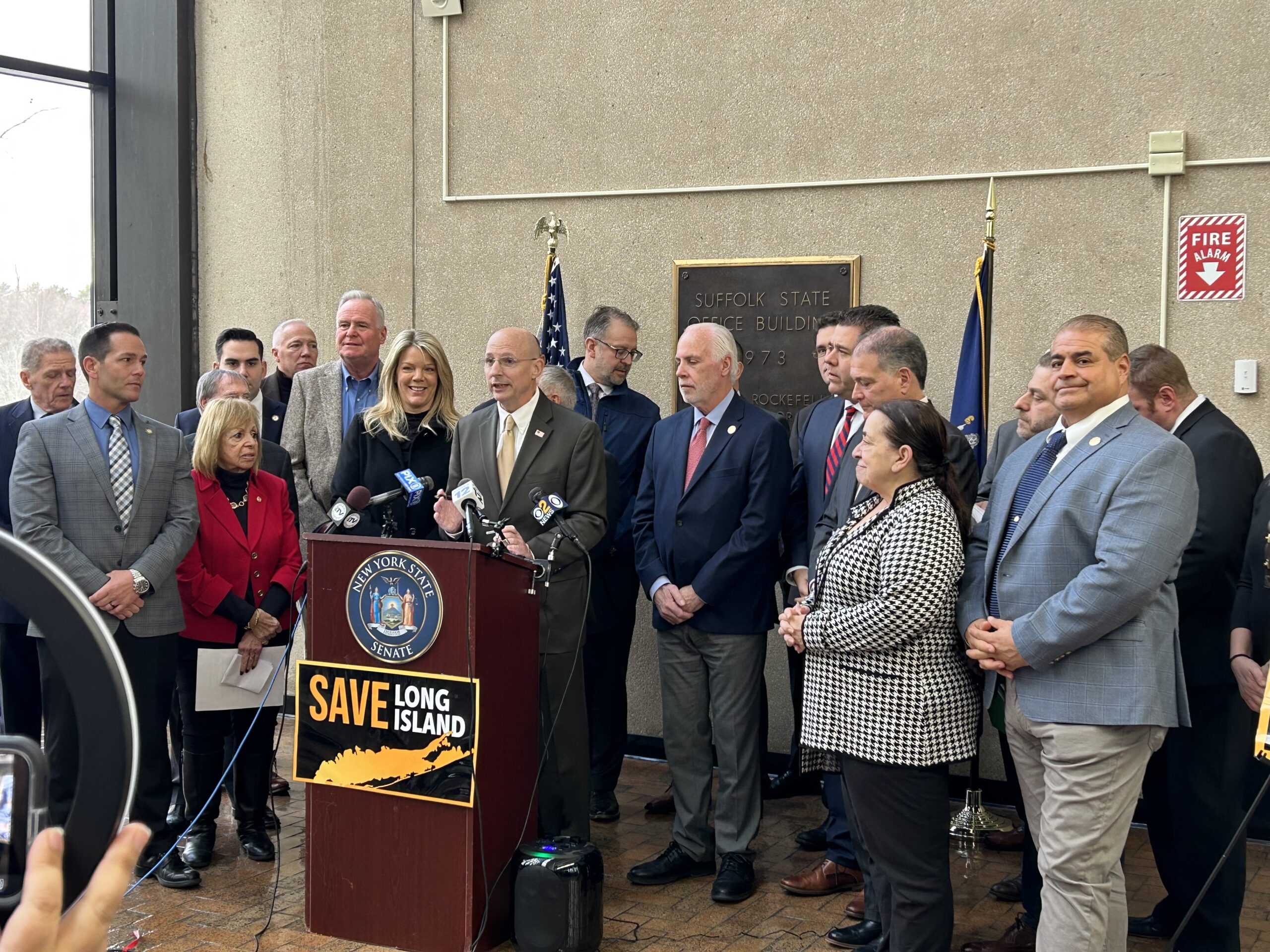Following Governor Kathy Hochul’s (D) housing proposal in the 2023 legislative session, local leaders were quick to denounce the move as an aberration in the 100-plus years of ‘home rule’ in the state.
As previously covered by The Messenger, the plan would call for housing stock on Long Island to increase by 3% over three years, compared with 1% for the rest of the state. If passed, the plan could be used to supersede local zoning and environmental review processes.
In Suffolk County, newly elected state Senator and former Assemblyman Dean Murray (R-Medford) appears to be leading the charge, organizing a noon press conference at the Perry B. Duryea State Office Building in Hauppauge on January 20.
It was then when a delegation of mostly Republican elected officials, a representative of Vision Long Island, Eric Alexander, and The Building and Construction Trades Council of Nassau and Suffolk Counties called ‘Housing Compact’ proposals an “overreach.”
“We all agree that we have an affordable housing problem,” said Murray. “What we don’t agree on is how to fix it.”
The delegation stressed the importance of villages, towns and cities having the ability to govern their municipalities and create local zoning laws, and grant building permits for urban plans based on the unique needs of the communities they represent.
Echoing these points, Smithtown Supervisor Ed Wehrheim added, “I can freely tell you that we are manufacturing affordable housing, but to the extent that is possible based on infrastructure. In Smithtown alone, over the past five years, we are approaching 450 rental units – 10% of all those units will be affordable as state law dictates.”
“Most of my town does not have sewers, and anyone who drove here can tell you the roads need a lot of help,” added Supervisor Ed Romaine (R) of Brookhaven, with both him and Deputy Supervisor Dan Panico (R-Manorville) discussing the development done throughout the town, especially in Patchogue.
“Governor, before you start talking about more housing, how about the infrastructure to support it? How about electrifying the rail? How about making sure the roads work? How about sewers? We live on an island which water comes from beneath our feet,” said Romaine, in reference to Long Island’s sole source aquifer.
Her plan offers municipalities a combined total of $280 million between planning and construction for the 880,000 units for the entire state, a far cry from what critics say is necessary.
Wehrheim and Panico pointed to sewer projects in their towns that cost $150 million and $232 million, respectively. Smithtown’s project is merely for its three business districts, and Brookhaven’s is for the Forge River Sewer District.
“The development we’re doing is the type of development that’s welcomed by the civics; it’s welcomed by the people who live and work locally,” said Supervisor Angie Carpenter (R). “We’ve created that housing… in a responsible manner that is responsive to the community.”
Most participants stressed that they were at the table ready to negotiate with the governor on affordable housing, urging the governor to include local stakeholders in the conversation.
At the same time, the Regional Plan Association (RPA), among other organizations, sees a tremendous problem with Long Island’s housing options. In a 2020 report, the RPA listed numerous challenges facing the region, “including a shortage of affordable and rental housing, an exodus of young adults, and meeting the housing needs of a growing elderly population.”
One issue many proponents of affordable or low-income housing point to in terms of further development is the, at times, “restrictive” local zoning ordinances.
“Between full-on bans of multi-family homes, and onerous zoning and approvals processes, they make it difficult, even impossible, to build new homes,” Hochul stated earlier this year in her ‘State of the State’ address.
Outside of the confines of the press conference, Citizens Campaign for the Environment – a Farmingdale-based environmentalist group – added to the growing list of concerned parties.
“We agree housing costs and rental costs need to be addressed; however, just building more does not achieve the important goal of affordable housing,” stated Adrienne Esposito, executive director of Citizens Campaign for the Environment. “To assume that if we build more on Long Island, suddenly builders will build more affordable units is a myth.”
Local officials from across the state managed to sink Hochul’s ‘auxiliary dwelling units’ proposal last year, a proposal which was arguably less intrusive in some respects. With Albany now in full swing, it remains to be seen what the future holds for home rule and local zoning.







